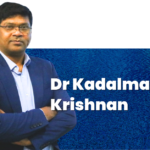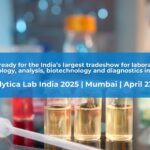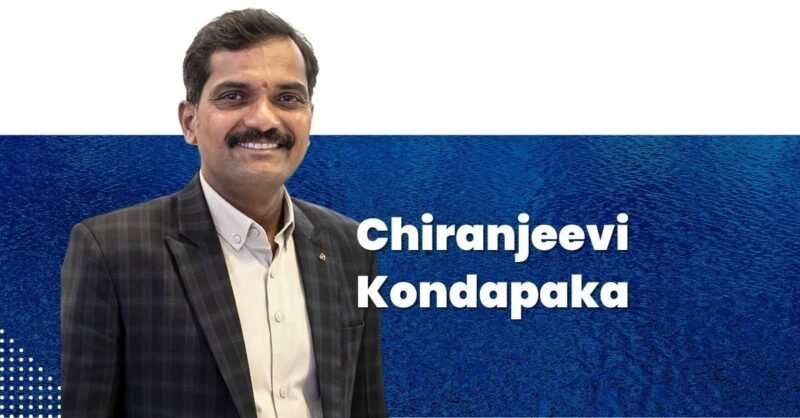inCoversation with Chiranjeevi Kondapaka, CEO, Steriline Asia
Pharmaceutical manufacturing is undergoing a massive transformation. Automation, artificial intelligence, and digitalization are reshaping how drugs are produced, particularly in aseptic processing, where precision and sterility are non-negotiable.
To understand how these next-gen technologies are changing the game and what the future holds, we sat down with Chiranjeevi Kondapaka, CEO of Steriline Asia. From AI-driven quality control to sustainable manufacturing, he shares his insights on the opportunities and challenges ahead.
Automation and AI are transforming pharmaceutical manufacturing at an incredible pace.
In your view, how are these technologies reshaping aseptic processing, and what opportunities do you see emerging in the next few years?
The impact of automation and AI in aseptic processing is profound. Traditionally, vision systems and aseptic manufacturing has relied heavily on human intervention, which, despite the best protocols, always carries a risk of contamination. But now, with AI-powered robotics, we can minimize human involvement, making the process more precise, repeatable, and compliant with global regulatory standards.
One of the biggest opportunities lies in real-time decision-making. AI can analyze vast amounts of data from production lines, detect anomalies instantly, and even predict potential failures before they happen. This not only improves sterility assurance but also reduces rejection percentages and batch failures, which is a significant cost factor in pharmaceutical production.
In the coming years, we’ll see even greater autonomy in manufacturing lines, with AI-assisted process optimization, vision inspections, smart sensors, robotic intervention in sterile environments, and predictive analytics making aseptic production smarter and more efficient.
Industry 4.0 has brought smart technologies like IoT and real-time monitoring into the spotlight.
How is Steriline incorporating these innovations into its aseptic solutions, and what kind of impact is it having on the industry?
At Steriline, Industry 4.0 is at the core of our innovation strategy. We’ve integrated IoT (Internet of Things) and real-time monitoring into our aseptic processing solutions to enhance process transparency, optimize performance, and improve compliance tracking.
For example, our systems now feature vision-based sensor-driven real-time monitoring, where every critical parameter—temperature, humidity, particle count, airflow velocity, and pressure differentials—is continuously tracked. If a deviation occurs, the system immediately alerts the operator or even triggers an automatic corrective action, reducing human intervention and improving sterility assurance.
The biggest impact has been on compliance and process optimization. Instead of relying on manual reporting, manufacturers now have a digital trail of every process parameter, making audits and regulatory compliance significantly easier. This level of data transparency and control is becoming the new standard in the industry.
Big Data has been called a game-changer for manufacturing.
How is Steriline using data analytics to improve quality control and operational efficiency in aseptic processing?
Data is now one of the most valuable assets in pharmaceutical manufacturing. At Steriline, we use advanced data analytics to monitor every stage of aseptic processing, ensuring that deviations are identified before they turn into bigger issues.
For instance, historical production data can be analyzed to detect patterns that predict equipment wear and tear—allowing for predictive maintenance instead of waiting for a breakdown. This helps reduce downtime, extend machine lifespan, and optimize maintenance schedules.
Additionally, machine learning algorithms are being used to refine quality control processes and productivity loss. By analyzing variations in production data, the system can flag potential sterility risks, helping manufacturers take corrective actions before non-conforming batches are produced. This is a huge leap forward in terms of cost savings and regulatory compliance.
Digital twins and predictive analytics are being hailed as revolutionary in manufacturing.
Do you think they have the potential to enhance efficiency and compliance in aseptic systems?
Absolutely. Digital twins and predictive analytics are among the most exciting developments in pharmaceutical manufacturing.
A digital twin is essentially a real-time, virtual replica of a production line. Every machine, process, and environmental condition can be simulated and monitored digitally, allowing manufacturers to predict and resolve issues before they occur in real production.
By integrating digital twins with AI and IoT, manufacturers can achieve an unprecedented level of control over their aseptic processes, ensuring faster, safer, and more efficient drug production.
Sustainability is becoming a top priority in manufacturing.
How do you balance the rigorous sterility requirements of aseptic processing with the need for more environmentally friendly practices?
Sustainability in aseptic processing is a complex challenge because sterility assurance often requires high energy consumption, expensive materials, and intensive decontamination procedures. However, we’re seeing significant advancements in sustainable solutions.
At Steriline, we’re focusing on three key areas:
- Energy-efficient isolators – Our latest designs incorporate energy-saving airflow systems, efficient tunnels, isolators, vapourised hydrogen peroxide, and smart environmental controls, reducing overall energy consumption.
- Eco-friendly decontamination agents – Instead of harsh chemicals, we’re working on solutions that use biodegradable, low-impact sterilants while maintaining sterility assurance.
- Reducing single-use plastics – Our research teams are exploring recyclable and biodegradable materials for isolator gloves, gowns, and other disposable aseptic equipment.
The goal is to create a sustainable yet compliant approach to aseptic manufacturing, where pharmaceutical companies don’t have to choose between sterility and environmental responsibility.
Steriline has become a key player in the Indian market.
How has your understanding of local challenges shaped the way you customize aseptic solutions for Indian manufacturers?
India is one of the world’s fastest-growing pharmaceutical markets, and aseptic processing is at the heart of its expansion. However, Indian manufacturers face unique challenges, including:
- Stringent cost pressures compared to Western markets.
- Variability in regulatory expectations across different geographies.
- High-volume production demands requiring ultra-efficient aseptic solutions.
At Steriline, we’ve customized our aseptic solutions to address these needs by:
- Developing combi machines, scalable systems that allow manufacturers to expand aseptic capacity without massive capital expenditure.
- Enhancing automation to reduce reliance on manual operations, improving sterility assurance while controlling labor costs.
- Aligning compliance support with both local and global regulatory frameworks, making it easier for Indian manufacturers to export to regulated markets.
By focusing on cost-effective innovation, we’re helping Indian pharma companies scale aseptic production efficiently while meeting the highest international standards.
In the coming days, what strategic initiatives are in the pipeline to position Steriline Asia as a leader in aseptic processing over the next five years?
Our vision for Steriline Asia is centered around technological leadership, sustainability, and regional expansion. Over the next five years, we’re focusing on:
- Expanding digitalization and AI-driven automation, making aseptic processes even more intelligent and autonomous.
- Strengthening our sustainability initiatives, with greener sterilization technologies and energy-efficient solutions.
- Enhancing our service and support network, ensuring that pharmaceutical companies across Asia have real-time access to technical expertise.
By leveraging cutting-edge technology and deep market expertise, we aim to set new benchmarks for aseptic processing in Asia—where sterility, efficiency, and sustainability go hand in hand.
Guest bio
Chiranjeevi Kondapaka is the Chief Executive Officer – Asia at Steriline, a leading provider of aseptic processing solutions for the pharmaceutical industry. With a career spanning over 15 years, Chiranjeevi has amassed extensive experience in business development, engineering, and leadership within the pharmaceutical machinery and industrial engineering sectors.
Disclaimer
The views and opinions expressed in this article are those of the expert and do not necessarily reflect the official policy or position of the platform. The platform does not endorse or take responsibility for the content and encourages readers to seek professional advice before making any decisions based on the information provided.
Author: Editorial Team






